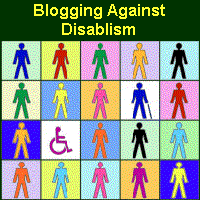David Cameron recently called for Britain to return to Christian values.
Well, as a non-believer, I’d prefer not to sign up to the actual religion, but I agree some of the values are very much worth preserving. And for me, especially at this time of year, those values are largely summed up by the story of A Christmas Carol - a traditional family tale which should be well up Cameron’s street, surely.
But is he, and are we, really listening to its message? It’s a very clear message, made plain from early on when Scrooge is approached to give to charity.
“Many thousands are in want of common necessaries; hundreds of thousands are in want of common comforts, sir.”
“Are there no prisons?” asked Scrooge.
Earlier this year, Ken Clarke’s attempt at prison reform was blocked because the government didn’t want to be ‘soft’ on crime.
“I don’t make merry myself at Christmas [said Scrooge] and I can’t afford to make idle people merry. I help to support the establishments I have mentioned – they cost enough; and those who are badly off must go there.”
The government and the right-wing media are full of attacks on benefit fraudsters, ‘scroungers’, and ‘handouts’. But 96% of calls to the National Benefit Fraud Hotline are malicious or timewasting. Of 254,000 calls to the hotline in 2009/10, only 1.3% resulted in a claimant being sanctioned for fraud. The Guardian has also reported that most cases of ‘fraud’ are actually error.
Meanwhile, ATOS is blithely pronouncing people fit to work on the basis of primitive tests and a brief interview. Not that they can get jobs, because there aren’t enough jobs to go round, and employers frequently discriminate against disabled people either overtly or covertly.
“If they would rather die,” said Scrooge, “they had better do it, and decrease the surplus population. Besides – excuse me – I don’t know that.”
“But you might know it,” observed the gentleman.
“It’s not my business,” Scrooge returned.
There was a call recently for better-off pensioners to donate their winter fuel payments to less well-off pensioners. David Cameron’s comment on this was: “I would not want to see any pressure put on people to do something that might not be in their best interests.”
“Man,” said the Ghost, “if man you be in heart, not adamant, forbear that wicked cant until you have discovered What the surplus is, and Where it is. Will you decide what men shall live, what men shall die? It may be, that in the sight of Heaven, you are more worthless and less fit to live than millions like this poor man’s child. Oh God! to hear the Insect on the leaf pronouncing on the too much life among his hungry brothers in the dust!”
Ken Clarke said after the riots: ”In my opinion our feral underclass in this country is too big, it has been growing, and now needs to be diminished.”
They were a boy and girl. Yellow, meagre, ragged, scowling, wolfish; but prostrate, too, in their humility.
“…This boy is Ignorance. This girl is Want.”
“Have they no refuge or resource?” cried Scrooge.
“Are there no prisons?” said the Spirit, turning on him for the last time with his own words. “Are there no workhouses?”
The Institute for Fiscal Studies estimates that child poverty will rise by 800,000 by 2020. People with cancer could lose their benefits if they don’t get better fast enough, and disabled children are being targeted too. David Cameron has proposed stripping benefits from families where children regularly play truant.
“But you were always a good man of business, Jacob,” faltered Scrooge.
“Business!” cried the Ghost, wringing its hands again. “Mankind was my business. The common welfare was my business; charity, mercy, forbearance, and benevolence, were, all, my business. The dealings of my trade were but a drop of water in the comprehensive ocean of my business!”
Do I even have to mention bankers?
Is Scrooge really the role model we want to adopt? If so, let’s stop pretending that we have any respect for the (traditional) values of generosity, benevolence and kindness. And while I don’t believe in ghosts, this image from A Christmas Carol never fails to chill me.
The air was filled with phantoms, wandering hither and thither in restless haste, and moaning as they went. Every one of them wore chains like Marley’s Ghost; some few (they might be guilty governments) were linked together; none were free. Many had been personally known to Scrooge in their lives. He had been quite familiar with one old ghost, in a white waistcoat, with a monstrous iron safe attached to its ankle, who cried piteously at being unable to assist a wretched woman with an infant, whom it saw below, upon a door-step. The misery with them all was, clearly, that they sought to interfere, for good, in human matters, and had lost the power for ever.
Christmas Eve is this Saturday. Who’s on for putting on some chains and arranging a midnight visit to Cameron?
Or is it the whole country that needs deScrooging?

